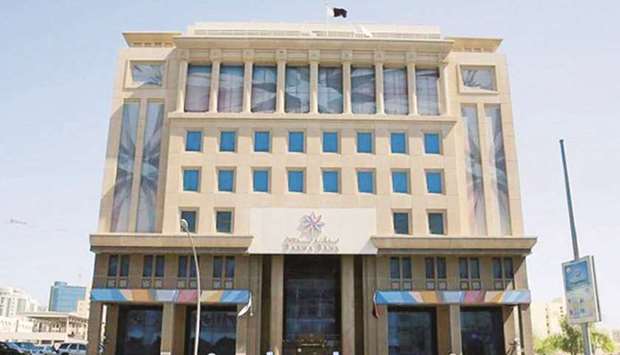Islamic financing asset growth will continue to pick up in 2020, Moody’s Investor Service said and noted that mergers between Islamic and conventional banks in the GCC will drive one-off increases in assets, as they did in 2019.
Strong demand across core Islamic markets is likely to continue to support growth in Islamic financing assets in 2020, Moody’s said in a report yesterday.
The merger of Barwa Bank and International Bank of Qatar (completed in April 2019) created the third-largest Islamic bank and sixth-largest bank in Qatar, with an estimated market share of 6% of total loans and assets of around $22bn, Moody’s noted.
Growth in Islamic financing assets accelerated in 2019, consistent with the overall expansion in banking system assets across core Islamic banking markets, it said.
In addition, Moody’s noted Islamic financing asset growth continued to outpace conventional asset growth across these markets. As a result, the market share of Islamic financing assets in core Islamic markets increased to 31.2% of total financial assets (including conventional bank loans), from 29.2% in December 2017.
The Gulf Co-operation Council region and Malaysia have led the growth in Islamic financing assets, the report said.
In the GCC, Islamic finance penetration increased over the last decade to 44% as of September 2019 from 32% in December 2009. The main driver was retail demand for Shariah-compliant financial services, which powered strong financing growth of around 6.2% in compound annual terms in the last three years, compared with a 4.5% increase in conventional bank financing.
In addition to customer demand, proactive government legislation, and mergers and acquisitions have driven growth in Islamic banking assets. “In the GCC, there has been a flurry of acquisitions and consolidations in the past two years. In some cases, Islamic banks are acquiring conventional banks and emerging as the surviving entity, substantially adding to their asset bases,” Moody’s noted.
In most countries where Islamic financial institutions (IFIs) are operating, the conceptual regulatory framework of the Basel Committee on Banking Supervision is the default framework. However, IFIs have additional and complementary regulatory guidance to ensure Shariah compliance from industry bodies such as the Islamic Financial Services Board (IFSB) and the Accounting and Auditing Organisation for Islamic Financial Institutions (AAOIFI).
In 2018, IFSB and AAOIFI signed a memorandum of understanding (MoU) to facilitate cooperation between the two organisations. Both are active in governing the IFI industry.
The MoU is credit positive for the IFIs because increased coordination between these industry organisations will increase harmonisation and standardisation of regulations. IFIs follow the standards and regulatory framework of their national regulators.
However, Moody’s noted IFIs are also expected to provide, along with their audited financial reports, Shariah audit reports that conform to AAOIFI principles. In addition to the financial audit and Shariah audit, the relevant supervisory authorities, as global standard setters for IFIs, often adopt IFSB principles, which are therefore important for IFIs.

Barwa Bank

